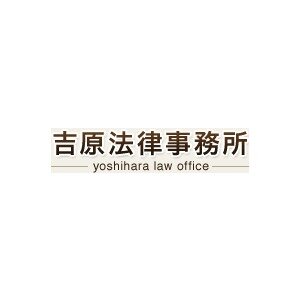Best Constitutional Law Lawyers in Japan
Share your needs with us, get contacted by law firms.
Free. Takes 2 min.
Or refine your search by selecting a city:
List of the best lawyers in Japan
About Constitutional Law in Japan
Constitutional Law in Japan is primarily governed by the Constitution of Japan, which came into effect on May 3, 1947. The Constitution is the supreme law of the land and provides the foundation for the country's legal and political systems. It was promulgated during the Allied occupation following World War II and is influenced heavily by democratic principles. Key features include the sovereignty of the people, the distribution of power between branches of government, and the protection of individual rights. The Japanese Constitution is renowned for its pacifist stance, notably Article 9, which renounces war as a means of settling international disputes.
Why You May Need a Lawyer
Legal assistance may be required in several situations concerning Constitutional Law in Japan. Common scenarios include but are not limited to challenges to governmental actions perceived to infringe upon constitutional rights, cases involving freedom of expression, religion, or assembly, and issues related to citizenship and immigration laws. You may also need a lawyer if you are involved in litigation or advocacy concerning human rights or if there is the need to navigate complex inter-governmental legal frameworks. Understanding how constitutional principles apply to your specific legal issues often necessitates professional legal interpretation and guidance.
Local Laws Overview
While the Japanese Constitution is the paramount law, various local laws and regulations also shape Constitutional Law practice. Key areas include judicial interpretations of constitutional rights, which are decided by Japan's judiciary, particularly the Supreme Court. Significant emphasis is placed on fundamental human rights, personal freedoms, and equality before the law. Local laws may be enacted by prefectures or municipalities and must align with constitutional directives. Familiarity with administrative and procedural regulations at various government levels is essential when engaging with constitutional matters.
Frequently Asked Questions
What constitutes a constitutional violation in Japan?
A constitutional violation occurs when a law or governmental action contradicts provisions set out in the Japanese Constitution. This can involve breaches of fundamental rights or overstepping of powers by governmental bodies.
How is freedom of speech protected under Japanese Constitutional Law?
Freedom of speech is guaranteed under Article 21 of the Japanese Constitution. This includes freedom of assembly and association as well as the freedom to engage in debate and expression without censorship.
What is the process for challenging a law on constitutional grounds?
Challenging a law on constitutional grounds involves litigation in the judicial system, ultimately leading to the Supreme Court, which has the authority to review statutes and government actions for constitutionality.
Can the Japanese Constitution be amended? If so, how?
Yes, the Constitution can be amended. The process requires a two-thirds majority approval in both houses of the National Diet, followed by a majority vote in a national referendum.
How does Article 9 affect Japan's military policies?
Article 9 renounces war and prohibits the maintenance of armed forces with war potential. However, interpretations have allowed for self-defense forces intended solely for defensive purposes.
What rights are protected under the Japanese Constitution?
Key rights include freedom of speech, religion, the right to due process, equality under law, and protection against unlawful detention and harassment.
Is there judicial independence in Japan?
Judicial independence is constitutionally guaranteed, with the judiciary, particularly the Supreme Court, serving as the guardian of constitutional order and rights.
How does the Constitution impact Japan's political structure?
The Constitution delineates a parliamentary government system, limiting imperial powers and emphasizing democratic governance through elected representatives.
What is the role of the Emperor under the Japanese Constitution?
The Emperor acts as the ceremonial symbol of the state and unity of the people, without governing powers, as stipulated by the Constitution.
How are disputes related to constitutional questions handled?
Such disputes are typically resolved within Japan's judicial system, with the Supreme Court providing the final interpretation and decision on constitutional matters.
Additional Resources
Individuals seeking more information about Constitutional Law in Japan can reach out to several resources and organizations. These include the Japan Federation of Bar Associations, which provides support for legal rights and access to attorneys, the Supreme Court of Japan for judicial interpretations, and academic institutions like the University of Tokyo's Faculty of Law. Government institutions, such as the Ministry of Justice, and non-profit organizations focusing on human rights, like Amnesty International Japan, can also offer valuable insights and assistance.
Next Steps
If you need legal assistance in the field of Constitutional Law in Japan, it is advisable to consult with a lawyer specializing in this area. Start by identifying your specific legal issue and gathering relevant documents. You can contact local bar associations or law firms to seek referrals for qualified constitutional law attorneys. Prepare to articulate your concerns clearly during initial consultations, enabling legal professionals to provide tailored advice and identify potential legal strategies. Remember the importance of addressing constitutional matters promptly to protect your rights effectively.
Lawzana helps you find the best lawyers and law firms in Japan through a curated and pre-screened list of qualified legal professionals. Our platform offers rankings and detailed profiles of attorneys and law firms, allowing you to compare based on practice areas, including Constitutional Law, experience, and client feedback.
Each profile includes a description of the firm's areas of practice, client reviews, team members and partners, year of establishment, spoken languages, office locations, contact information, social media presence, and any published articles or resources. Most firms on our platform speak English and are experienced in both local and international legal matters.
Get a quote from top-rated law firms in Japan — quickly, securely, and without unnecessary hassle.
Disclaimer:
The information provided on this page is for general informational purposes only and does not constitute legal advice. While we strive to ensure the accuracy and relevance of the content, legal information may change over time, and interpretations of the law can vary. You should always consult with a qualified legal professional for advice specific to your situation.
We disclaim all liability for actions taken or not taken based on the content of this page. If you believe any information is incorrect or outdated, please contact us, and we will review and update it where appropriate.
Browse constitutional law law firms by city in Japan
Refine your search by selecting a city.












